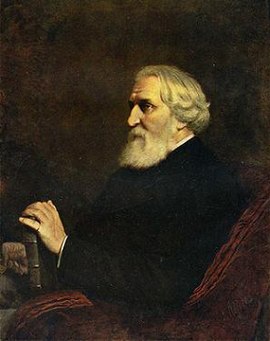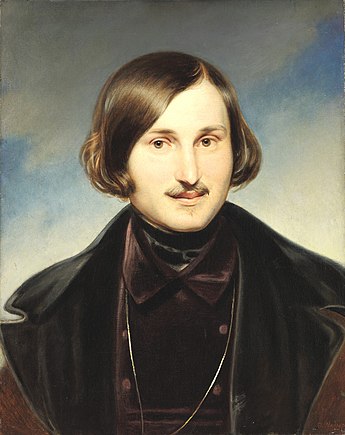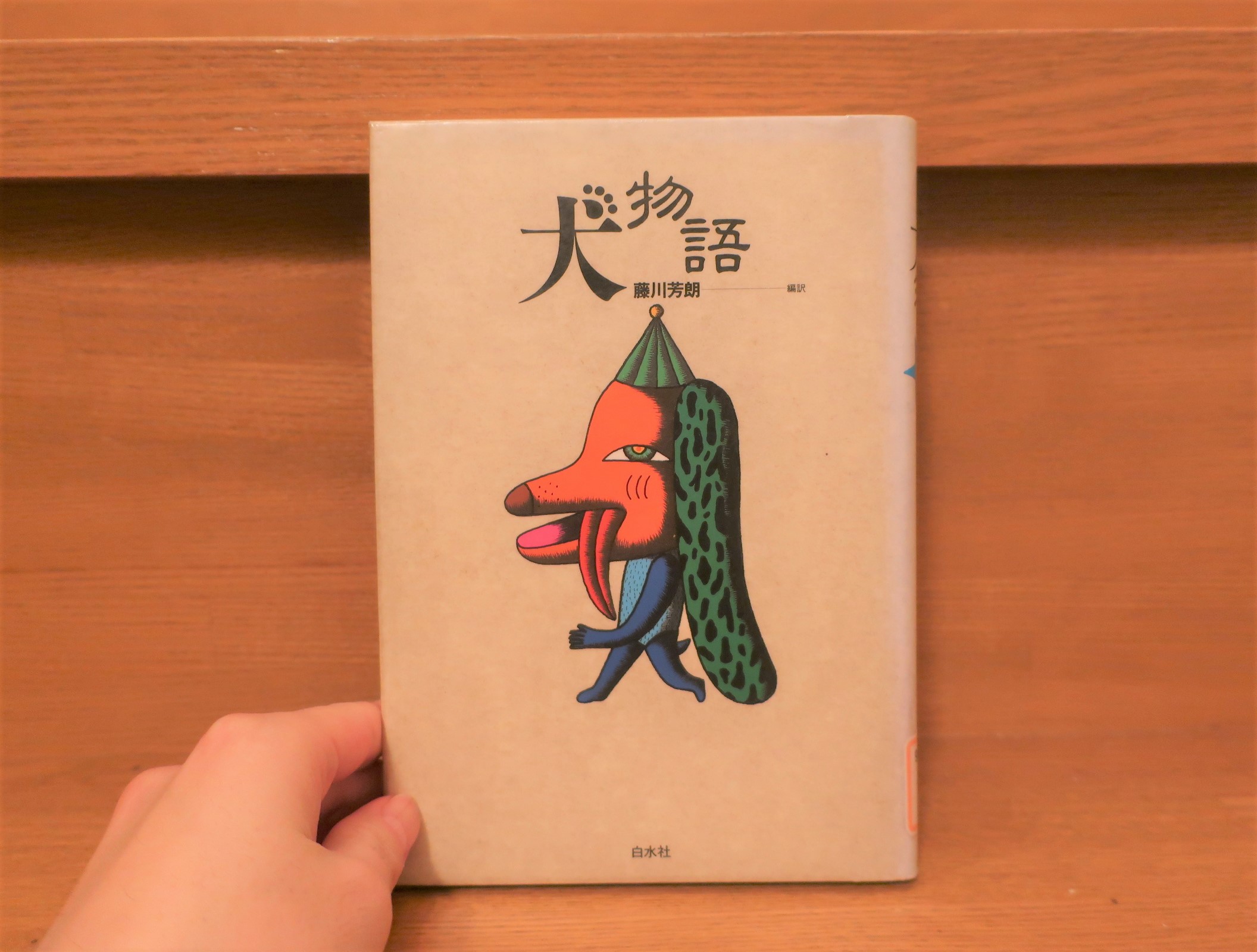Table of Contents
Turgenev's "Mumu" synopsis in "A Dog's Tale

Turgenev (1818-1883)Wikipedia.
Mumu is a short story written by Turgenev in 1852.
I read "Mumu" by Turgenev, translated by Eiichi Yazawa, in "Inu Monogatari" edited by Yoshiro Fujikawa, published by Hakusuisha. Inu Monogatari" is a collection of short stories about dogs from around the world, and "Mumu" by Turgenev is one of them. The title "Mumu" comes from the name of a dog.
Let's take a quick look at the synopsis.
Gerasim, a big man and possessor of monstrous strength that could do the work of four men, had a reputation as the most honest and hardworking man in the village, like a tree growing in the earth.
He was mute and deaf, but was picked up by a widowed landowner who lived in a mansion on the outskirts of Moscow, where he began working as a housekeeper. Although he was unfamiliar with the job, he was a faithful worker and was well received by the lady.
Tatyana, a laundry girl who worked in the same house, captured the heart of the pure-hearted Gerasim, and he wanted her for his wife. However, Tatjana was sent to Kapiton, a drunken shoemaker, at the behest of the Mistress. She did not do it out of malice, but because she wanted to make Kapiton feel better about himself. She did not do it out of malice, but she played with the fate of the serfs and made both Tatyana and Gerasim unhappy. After a year, Kapiton's condition did not improve, and the couple was finally banished to the distant countryside.
Geratum picked up a small female dog that was washed up in the river and raised her carefully in her room. Within seven or eight months, she had grown into a fine spayed dog. He raised her with a kindness and tenderness that no mother could match.
Mumu," as the mute Gerasim called her, became her name, and she was adored by all. However, due to Mrs. Gerasim's repeated selfishness and misunderstandings, as well as the servile and petulant butler Gavriela's follow-through, Mumu was forced to drown herself at Gerasim's hands.
Gerasim's love for Mumu is the most simple and pure, and this pure love is portrayed in contrast to the brutal and prejudiced selfishness of the landlady. Gerasim escapes from the mansion and returns to his birthplace, and the author paints his unhappy life in the city with a warm brush.
The depiction of his love for Tatyana is somewhat humorous, but it also highlights the innocence of Gerasim, the mute. The fact that this pure love and affection for Mumu is so cruelly trampled upon evokes pity for Gerasim and even protest against the class of female landlords.
Hosei University Press Kimito Ogura, Turgenev: Life and Works, p. 44-45
Words cannot describe the cuteness of the puppy Mumu and the sadness of parting, as it is included in "Inu Monogatari". Inu Monogatari" itself consists of 14 short stories, and "Mumu" is the first one to be included in the book.
It is evident that this work is well-known and popular worldwide.
Now, this work, like Turgenev's "The Hunter's Diary," is strongly influenced by his childhood experiences. His childhood was not a happy one.
His mother was a landowner who acted like a tyrant, always terrorizing the serfs.
The following is a description of the situation, along with Turgenev's origins.
Ivan Sergeevich Turgenev Ивaн Сергееевич Тургенев (1818-83) was born in the city of Oryol in the central part of Europa-Lithia.
When my father, who was in the military, retired two years later, the family moved to my mother's estate in the lower Oryol province.
Her mother was a domineering, selfish, and hysterical woman, and her treatment of the serfs was harsh. Originally, she had spent a miserable youth as an orphan, but now, as an old woman, she had unexpectedly become the heir to a vast fortune.
Then Turgenev's father, who came from an old family but was of a lowly samurai family, came along, and the two married. From the husband's point of view, this marriage was for money, so to speak, and the wife could not be happy.
The winds and waves that often blow between the two men, and how dull their home life was, are described in Turgenev's autobiographical short story, "First Love" (1860).
Her father died prematurely, but her widowed mother became more and more obstinate and radical, and in her later years she led a life as tyrannical as that of the landowner in the short story "Mumu" (1854). (For example, she even sent two serfs to Siberia for bowing badly.)
In this environment, Turgenev developed a deep hatred of serfdom at an early age. On the other hand, he also developed a love of nature and sympathy for the people of Russia.
Iwanami Shoten, translation by Akira Sasaki, The Hunter's Diary, p. 299
As this commentary shows, the female landowner in "Mumu" is modeled after his mother.
Although the main characters are only Gerasim and Mumu, the work still has a strong presence of an arrogant female landowner.
Background of "Mumu" Writing
The context in which this work was written is also interesting.
The year this work was written, 1852, was the year that Gogol, a star of Russian literature, died.

Turgenev deeply respected him and published an obituary. However, this caught the attention of the government and caused him to be arrested.
Although Gogol himself did not intend it, his work was viewed by the government as anti-establishment. Thus, anyone who praised Gogol was considered a dissident, and was therefore under the watchful eye of the secret police.
Henri Troyer's from here.A Biography of Turgenev.We will refer to the following.
Although the article never pointed an arrow at the regime, the police under Nicholas I were suspicious of any disturbance over a writer.
The censors in St. Petersburg forbade the publication of this eulogy text. So Turgenev sent his manuscript to Moscow. There, a more lenient censor gave permission for publication.
The memorial was published in the "Moscow Report" on March 13, 1852, under the signature "T...v.". Soon after, Turgenev was arrested for "disobedience and violation of censorship rules," and was taken to the Grand Admiralty prison.
He spent a month there, receiving very poor treatment. He was allowed solitary confinement, good food, champagne, books, and visitors.
As a distraction, he learned Polish and also wrote a novel called Mumu. This work is based on actual events that took place in Spasskoe under the tremendous rule of Varvara Petrovna.
With pen in hand, he took revenge once more on the woman beyond the grave, the woman who had wielded power and deprived him of the freedom of his youth. Even after her death, he did not cease to wield the rod of the rebellious and weak in his heart.
Suiseisha Henri Troyer, translated by Hiromiko Ichikawa, Biography of Turgenev, p. 70-71
I too was surprised when I first read this.
It is well known that Dostoevsky was arrested and exiled to Siberia for being in a socialist thought group, but I had no idea that Turgenev was also arrested and jailed.
But there may be a lightness of sin, but there is a sergeant of a great noble family.
He spent a month there, receiving very decent treatment. He was allowed solitary confinement, good food, champagne, books and visitors."
It was a very different prison life from that of Dostoevsky, who was on the verge of life or death.
It was very interesting for me to learn that "Mumu" was written under such circumstances.
impressions
Mumu" may not be well known in Japan, but I feel that it is one of Turgenev's most dramatic works.
The simple goodness of the gerashim, and their counterparts, the female landlords and stewards.
And above all, the heartwarming days with Mumu.
As a dog owner, that is a particularly emotional point for me.
However, these happy days unexpectedly come to an end due to the tyranny of a female landowner.
Gerasim is ordered to kill the dog. What will he do, what will happen to him when he floats his boat on the river alone away from the city, and what will happen to Mumu?
I was terrified and my heart was racing as I read.
It is the power of Turgenev's pen that makes this happen even if you know the synopsis and commentary in advance.
If you read it without knowing the synopsis you will be quite shocked. At least I was shocked when I read the synopsis.
This work had that much impact.
It is one of Turgenev's works that is small in volume and very easy to read, so if you are interested in this work, please pick up a copy.
The above is a synopsis of Turgenev's "Mumu" from "A Dog's Tale" - a sad story about a serf and a puppy.
Next Article.





































